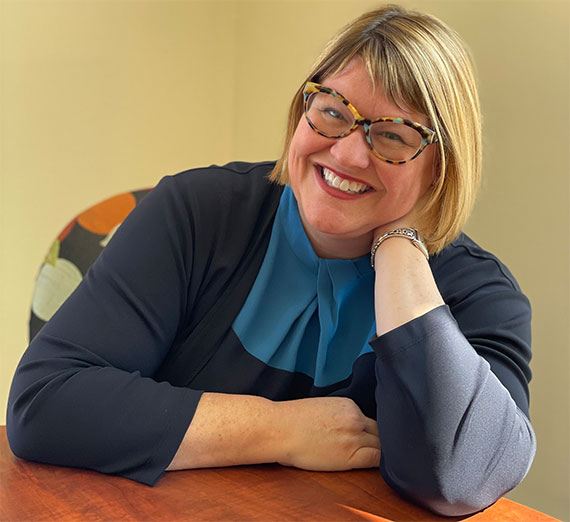Julie A. Wolter, PhD CCC-SLP
Dean, School of Health Sciences
Wolter, who joined Gonzaga in June of 2023, grew up in Billings, Montana and started her higher education career at Carroll College in Helena, Montana. She later moved to Washington where she completed her masters in speech-Language pathology at Western Washington University. After practicing as a speech language pathologist in hospital and school settings for several years in Idaho and Oregon, she returned to school to complete her PhD at Wichita State University with a specialization in supporting developmental language and literacy deficits in young school-age children. She has since served almost 20 years in faculty, chair, and director roles at Utah State University and then University of Montana where she most recently served as the Associate Vice Provost for Innovation and Online Learning. She is a recognized leader in higher education and her formal leadership development and certifications include the well-known Harvard Institute for Higher Education (2019), Council for Academic Programs Communication Sciences and Disorders Leadership Institute (2015), and the American Speech Hearing Association Leadership Development Program (2009).
Wolter is an internationally known scholar, and her research and clinical work in language-literacy development, dyslexia, assessment, and intervention are widely published. In recognition of her research and service to her health field, in 2018 she was awarded Fellow of the American Speech Language Hearing Association. She currently maintains an active research lab and is funded through an R01 with the National Institutes of Health, in collaboration with Massachusetts General Hospital's Interprofessional Health Program and the Royal Holloway University of London, to examine linguistic development and related assessment and intervention practices in young school children with and without dyslexia and developmental language disorder. Dr. Wolter is committed to enhancing and promoting health professional students' education, research, and clinical experiences in underserved community settings and has secured funding, such as a $1.25 million grant through the U.S. Department of Education, to support students and develop distance health programming in rural and American Indian tribal communities throughout the Inland West regions.

